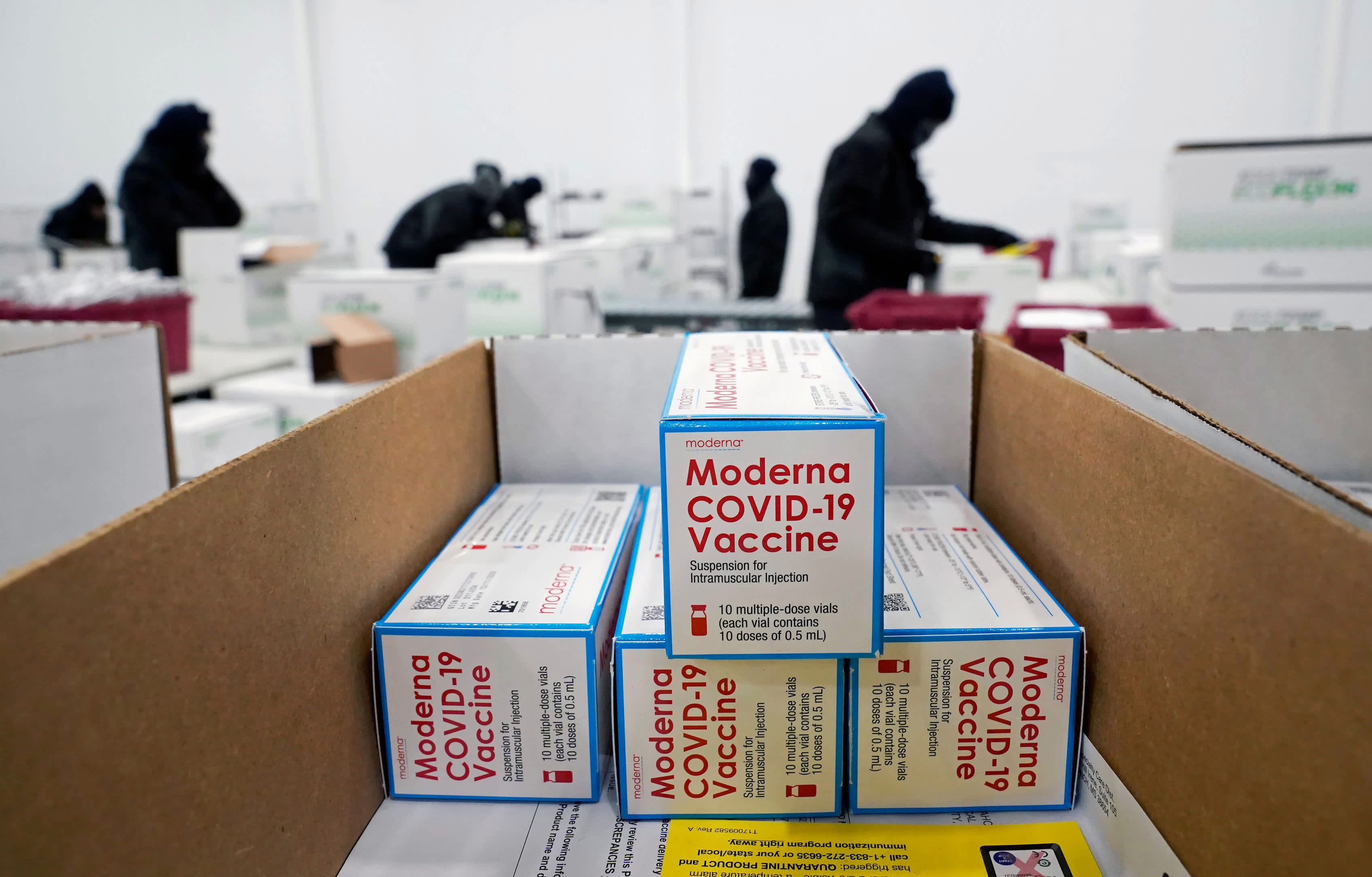U.S. to change Covid vaccine allocation to favor states that quickly administer shots

The federal government is changing the way it allocates coronavirus vaccine doses, now basing it on how quickly states can administer shots and the size of their elderly population, Health and Human Services Secretary Alex Azar said Tuesday.
States will be given two weeks to prepare for the change, Azar told reporters during a news briefing. That should give states enough time to improve their data reporting to the government and ensure all vaccinations are being "promptly" documented, he said.
States aren't currently reporting vaccinations in a timely matter, Azar said, adding that vaccine doses "are sitting in freezers in hospitals."
The announcement comes as the Centers for Disease Control and Prevention issues new guidelines that expand coronavirus vaccine eligibility to everyone 65 and older as well as to those with comorbid conditions, like diabetes and heart disease. The states' focus on vaccinating health-care workers and nursing homes has created a bottleneck, slowing the pace of inoculations, a senior administration official told CNBC.
"States should not be waiting to complete phase 1a prioritization before proceeding to broader categories of eligibility," Azar said Tuesday, explaining the new guidance. "Think of it like boarding an airplane. You might have a sequential order in which you board people. But you don't wait till literally every person from a group is boarded before moving on to the next."
The Trump administration will also stop holding back millions of doses reserved for the second round of shots of Pfizer's and Moderna's two-dose vaccines, the official said, adding they've released doses that had been held in reserve on Sunday. President-elect Joe Biden's transition team announced a similar plan Friday.
Some 53 million Americans who are 65 and older and 110 million people between 16 and 64 with comorbid conditions will now be eligible to receive the vaccine if every state adopts the guidelines, according to the CDC.
Vaccine doses were previously allocated based on the number of adults in each state. But U.S. officials are complaining the pace of vaccinations has been too slow as the supply of vaccine doses exceeds demand.
Arkansas and Georgia are the two worst performers, vaccinating 1,355 and 1,346 people, respectively, per 100,000, according to CDC data. Meanwhile, the Dakotas and West Virginia are giving more than 5,000 shots per 100,000 people, according to the agency.
As of Monday morning, more than 25.4 million doses had been distributed across the U.S., but just over 8.9 million shots have been administered, according to CDC data. The number is a far cry from the federal government's goal of inoculating 20 million Americans by the end of 2020 and 50 million Americans by the end of this month.
State and local health officials have said they are strapped for cash. They blame insufficient funding and inconsistent communication from the federal government for the slow rollout.
In an attempt to pick up the pace of vaccinations, Azar and Food and Drug Administration Commissioner Dr. Stephen Hahn urged states last week to begin vaccinating lower-priority groups against Covid-19.
The CDC recommended immunizing health-care workers and nursing homes first, but states can distribute the vaccine as they see fit. Hahn told reporters that states should give shots to groups that "make sense," such as the elderly, people with preexisting conditions, police, firefighters and other essential workers.
Azar acknowledged Tuesday that the government's guidelines are new, adding providers usually have a month to report their data instead of days. "That's a major workflow change for them. There are going to be kinks in the system for them on that data," he said.
Source
Check Our More
No comments